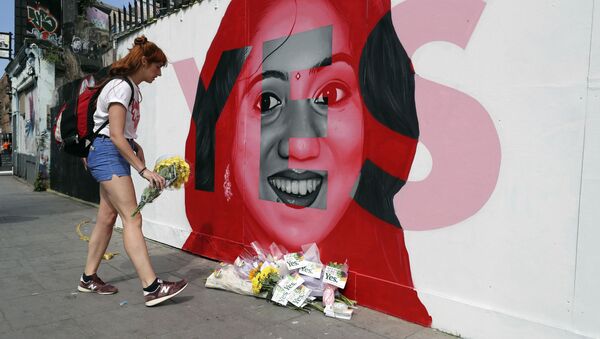Sputnik: Was this an expected result in this referendum?
Gail McElroy: It was expected to pass, but the strength of the "Yes" vote was really quite shocking to everybody; that so many people would vote to repeal this amendment of the constitution was totally unexpected. It was expected that the poll results would be much closer. And so this strong endorsement of liberalizing our abortion laws is quite startling, yes.
Sputnik: How strong were the various camps, as far as lobbying, for their point of view, prior to the vote, the referendum?
Gail McElroy: It is a long history; this is the sixth referendum on abortion in the last 35 years. The "No" campaign has always been strong, but the "Yes" campaign, particularly since marriage equality, has become quite strengthened. No government in the last 35 years really wanted to touch the topic, because they thought it was very divisive; but there were strong camps on both sides, and it clearly turned out that the "Yes" campaign had a stronger majority amongst the population and this reflects a very changed society in the last 20-30 years.
Sputnik: What do you think the reaction of the Catholic Church in Ireland is going to be to the results of the referendum? Have they said anything, has there been any official statement?
Gail McElroy: I think they are probably reeling; I don't think they would have expected the strength of the "Yes" side. Obviously, they are not going to change their teachings on abortion; it is very fundamental to practicing Roman Catholics. What was interesting is that they weren't particularly visible in the campaign because they thought that might alienate people, because their moral authority has receded.
READ MORE: ‘Landslide' Irish Referendum Overturns Abortion Ban
Their handling of the sex abuse scandals since the early 1990s has been horrific, and their treatment of women in these laundries, the last of which closed in 1996. And there have been other scandals, mother and baby homes, where [there was] all sorts of abusive behavior toward women and children. So, they were relatively quiet, and the Archbishop of Dublin said that basically they will still continue to teach that abortion is wrong, but there is not much they can do, really, I think they are reeling from this result.
Sputnik: Do you think that these are the younger generations that are actually becoming more liberal and, perhaps, straying a bit away from Church teaching? Or is this something that is among various generations, this change in their stance?
Gail McElroy: The "Yes" vote, the vote to liberalize was strongest amongst the youngest, but there has been also a change among older people. Every age category, apart from over 65, voted in favor of liberalization on Friday. But even among the elderly, a huge number of them also voted yes. So, it's a change that is the strongest among the young, but there has been a change even among older people. They are far less devout, they are far less accepting, they are more critical of Church teaching. And also many of them have abandoned the Church. The rates of participation on a Sunday have just plummeted since the 1980s. So, people are not practicing as much. And they are much more critical, and rational, and they are much more doubting of the religious authority of the Roman Catholic Church.



